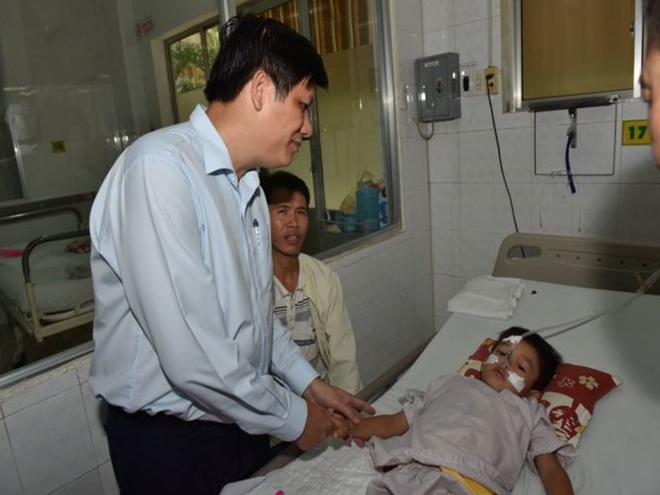Nha Trang: Wolbachia bacteria-bearing mosquitoes to be released to nature
This is a research co-conducted by the National Institute of Hygiene & Epidemiology of Vietnam, Nha Trang Pasteur Institute, and Khanh Hoa provincial Department of Heath, hosted by Monash University (Australia). The research program has been implemented in several countries, including Vietnam, with an aim to prevent the spread of dengue fever and Zika viruses.
The project will be implemented in two areas in the North and the South of Nha Trang city, where 55,900 people of 12,600 households are living. 773 Wolbachia bacteria-bearing mosquitoes boxes will be placed in these two areas.
 |
From March 2017, 100 mosquitoes will be released from each box each week for 12 to 18 continuous weeks to reduce the number of natural mosquitoes holding dengue fever and Zika viruses.
According to the National Institute of Hygiene & Epidemiology of Vietnam, the released mosquitoes are of Nha Trang origin. These Wolbachia bacteria-bearing female mosquitoes will mate with natural male mosquitoes to produce other generations of Wolbachia-bearing mosquitoes.
Wolbachia is an intracellular bacterium that lives in the cells of about 60% natural insects. Meanwhile, natural mosquitoes, vectors that spread dengue fever and Zika disease, do not have Wolbachia.
Based on comprehensive scientific studies conducted in Australia, Vietnam and Indonesia and the 10-year research findings, the Wolbachia method has been confirmed to be safe for humans, animals and environment. Scientists have also proved that Wolbachia bacteria can inhibit the growth of dengue fever and Zika viruses inside mosquitoes.
In March 2016, the World Health Organization recommended the expansion of the application of the
Wolbachia method to the control of mosquito-borne diseases and prevention of Zika virus.

